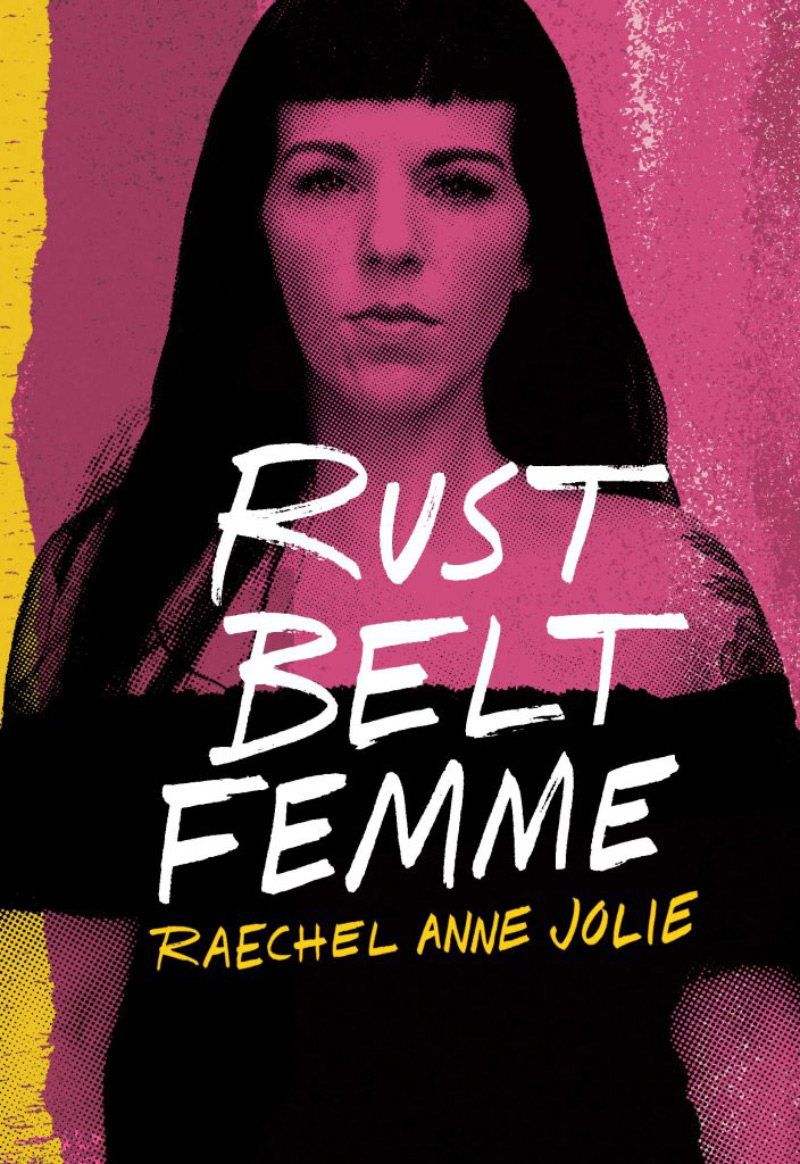 (Belt Publishing)
(Belt Publishing)"Ecstatic. Shocked." That’s how Raechel Anne Jolie (CMN ’07, MA ’09) described her reaction to learning that her memoir,
"Rust Belt Femme" had made
NPR’s list of the best biographies and memoirs of 2020.
"The book was put out from a small press that doesn’t often get attention from big media outlets like that. So I was really honored and excited," she says. Belt Publishing, which published the book, describes it as a story of how "rural Ohio poverty and alternative ’90s culture made Raechel into who she is today: a queer femme with PTSD and a deep love of the Midwest."
Jolie recalls that despite recounting some of the toughest times of her life, writing the book was a "mostly enjoyable process. Creative writing has always been my passion, so it was really enjoyable to get back to a style of writing that wasn’t strictly academic."
Jolie is referring to the writing she does as part of her "day job." Since earning her PhD in communication studies, Jolie has pursued an academic career that has taken her to teaching positions at Merrimack College, Tufts University and Normandale Community College. She is now the Making Media, Making Change program director with the Higher Education Consortium for Urban Affairs (HECUA), a nonprofit that offers community-based, experiential-learning classes with a social justice bent to students across Minnesota.
This unorthodox position in higher education suits Jolie’s preference for a varied and flexible career—a preference she discovered at DePaul. She recalls her internship at a nonprofit during her senior year: "It was a great place, but I realized that sort of 9-to-5 life really was not for me."
Her faculty mentors in the College of Communication, Dan Makagon and Barb Willard, helped her apply very late for the college’s master’s program. Once in the program, Jolie became excited about the possibilities of a career in academia. "I remember very vividly thinking that when you’re a professor, you get to kind of do social justice work through teaching, but you also get to write," she says. "Teaching and writing have always been the focus since about my senior year of college."
Jolie feels that her political and activist education was nurtured alongside her more traditional academic education at DePaul. Professors Makagon and Willard, she says, "opened my eyes that communication studies could be this space where I could think about social change through a lens that just felt more flexible and more comfortable than some of the other disciplines that I had been taking classes in."
DePaul also nurtured her social and civic life in ways that still resonate with her today. She was involved in a student activist group called DePaul Students Against the War. "I still have lifelong friends that I’m very close to from that group," she comments. She also was interested in Chicago’s vibrant punk rock scene and attended concerts at the Fireside Bowl, a mecca for punk rock enthusiasts. "Student life at DePaul really stands out," she says. "I really loved my time there."
Originally published in
Conversations (Spring 2021).